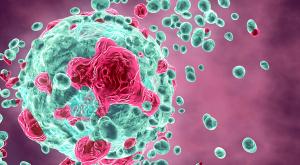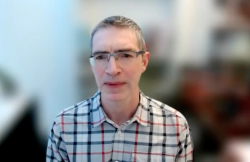Immunotherapy May Lead to Chronic Side Effects
Many patients with skin cancer who were treated with immune checkpoint inhibition experienced long-term side effects, although some resolved over time, research showed.
Chronic immune-related side effects were common in patients with skin cancer who were treated with postsurgical Opdivo (nivolumab) or Keytruda (pembrolizumab), although for some individuals, these toxicities were resolved by the 18-month mark, according to a recent study published in JAMA Network Open.
“Insights into the long-term impact of adjuvant anti–PD-1 therapy are crucial to optimize patient outcomes as these agents are used across different tumor types,” the authors wrote in their published study. “The high prevalence of chronic (immune-related side effects) suggests the importance of considering the risk-benefit ratio when initiating adjuvant therapy and the need for prolonged monitoring and proactive management of (immune-related side effects).”
Immunotherapy agents, such as Opdivo and Keytruda, have become increasingly popular in the skin cancer space in recent years. These drugs block certain proteins on the cancer cell surface that help the tumors hide from the immune system. By doing so, immunotherapy agents help the patient’s immune system find and fight cancer.
The researchers involved in this study analyzed data from 318 patients who were treated with Opdivo or Keytruda after undergoing surgery for advanced or metastatic melanoma. Findings showed that 147 patients (46.2%) experienced at least one chronic (lasting three months or longer) immune-related side effect. This included 74 grade 2 or higher side effects and six were grade 3 through 5 (moderate, severe or fatal). All these side effects were symptomatic.
“(Immunothearpy drugs) targeting … PD-1/PD-L1 prolong recurrence-free survival when used as adjuvant therapy. … Anti–PD-1 also causes widespread T-cell activation and results in autoimmune side effects involving multiple organs, termed immune-related adverse events,” the authors wrote. “While most severe (immune-related adverse events) are acute and resolve with glucocorticoids, we recently reported that up to 43% of (immune-related adverse events) persist for at least 12 weeks following therapy cessation in patients with melanoma treated with adjuvant anti–PD-1.”
At a longer follow-up, (average of 34.7 months) 54 patients (36.7%) experiences resolution of their chronic side effects, with an average of 11.2 months between ending their immunotherapy treatment and having their toxicity resolve.
For those who were still experiencing side effects at the long-term follow-up, 59.1% had grade 2 or higher side effect, while 44.1% were symptomatic and 25.8% were using therapeutic steroid treatment.
READ MORE: Immunotherapy Side Effects: ‘No Organ System Potentially Unaffected’
Common immunotherapy side effects that sometimes became chronic included: adrenal insufficiency, arthritis or joint pain, skin inflammation, thyroid issues and colitis/diarrhea.
Among the 48 patients who experienced chronic side effects, 32.7% experienced disease recurrence, including 18 cases (12.2%) of regional recurrence and 30 (20.4%) of metastatic recurrence, meaning that the cancer spread to another part of the body. Additionally, some patient (32.4%) experienced a flare of the toxicity when they were retreated with immunotherapy.
“The resolution of some chronic (immune-related side effects), as well as the flares occurring with retreatment (32.4%) suggest some patients have ongoing inflammation. The persistent nature of (immune-related side effects), particularly endocrinopathies, suggests that permanent damage may occur in some patients. For this population, rechallenge with a lower risk of irAEs may be possible (although some still flare),” the researchers wrote. “Further research should aim to identify patients that are predisposed to persistent toxic effects.”
For more news on cancer updates, research and education, don’t forget to subscribe to CURE®’s newsletters here.
Related Content
 Understanding Adjuvant and Neoadjuvant Melanoma Treatment
Understanding Adjuvant and Neoadjuvant Melanoma TreatmentFebruary 18th 2024
 Experts Give an Overview of the Latest Melanoma Therapies
Experts Give an Overview of the Latest Melanoma TherapiesFebruary 15th 2024
 What’s the Plan for Patients With Melanoma After Surgery?
What’s the Plan for Patients With Melanoma After Surgery?January 10th 2024
 Why Melanoma May Need Treatment After Surgery
Why Melanoma May Need Treatment After SurgeryNovember 15th 2023
 Solid Cancer Approvals from Summer 2023
Solid Cancer Approvals from Summer 2023September 1st 2023
View additional resources on CureToday.com




